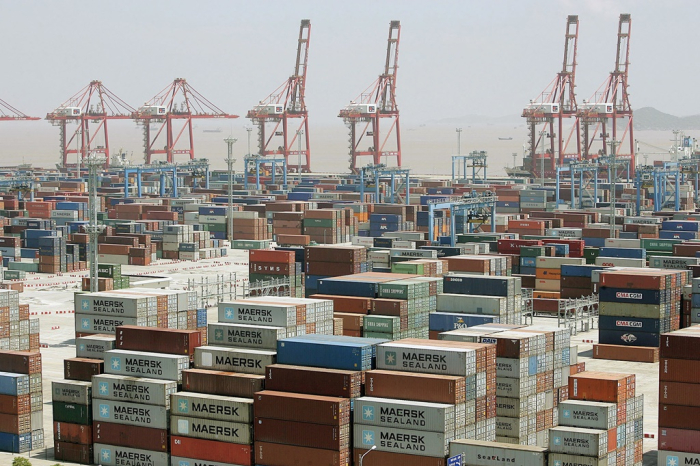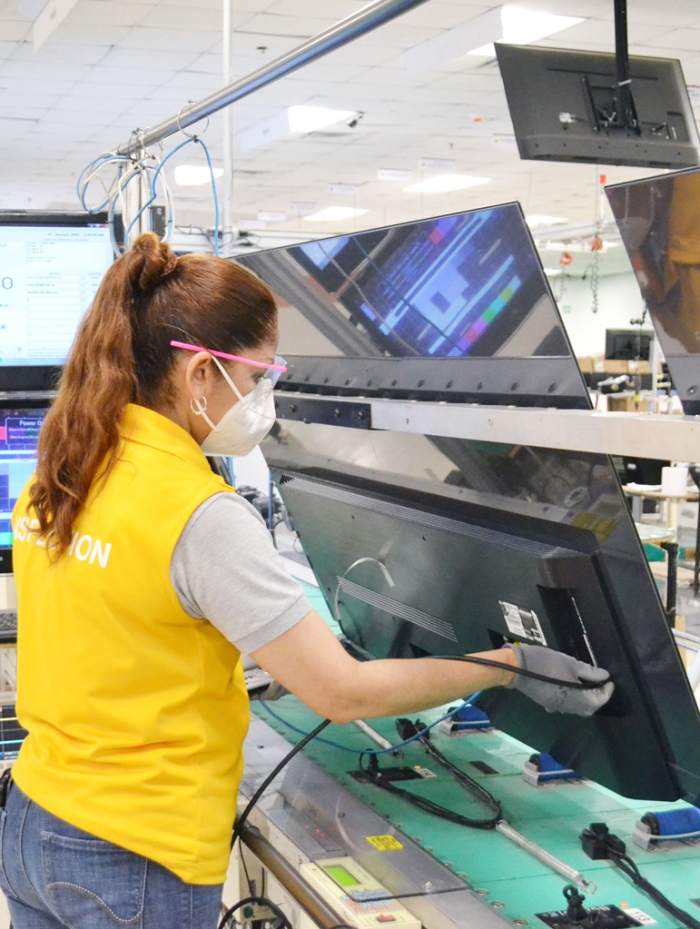Coronavirus pandemic
Korea electronics, auto sectors hit by triple whammy
Industries slammed by slowing demand, supply disruption and shipping shortage stemming from Delta variant
By Aug 22, 2021 (Gmt+09:00)
5
Min read
Most Read
Alibaba eyes 1st investment in Korean e-commerce platform


Blackstone signs over $1 bn deal with MBK for 1st exit in Korea


NPS loses $1.2 bn in local stocks in Q1 on weak battery shares


OCI to invest up to $1.5 bn in MalaysiaŌĆÖs polysilicon plant


Korea's Lotte Insurance put on market for around $1.5 bn



South Korea's electronics and auto industries, the two main pillars of AsiaŌĆÖs fourth-largest economy, are losing growth momentum. Demand is slowing, while costs are increasing on surging commodity and shipping expenses. In addition, overseas plants have reduced operations due to a surge in Delta variant COVID-19 infections, straining the nation's core industries.
Uncertainty is growing over the outlook of the countryŌĆÖs electronics and auto sectors as the pandemic continues to spread across the world. The industries have been experiencing slower demand since April and May.
ŌĆ£Second-quarter sales missed our expectations. The global industry is facing pretty similar pressures,ŌĆØ said an executive of a domestic electronics maker.
Pent-up demand, which has helped South Korean electronics and auto makers since the second half of 2020, has been easing, the executive said.
Global consumption is also slowing.
ŌĆ£Electronics demand around the globe is expected to ease in the second half. So, we continue to check production plans to maintain inventory at a proper level,ŌĆØ said a source at a display maker in the country.
MORE GLOOM IN H2
Increasing infections of the Delta variant worldwide have made it even more difficult to forecast consumer sentiment.
ŌĆ£We have not set up a sales strategy yet as it is really hard to predict the second half,ŌĆØ said another executive at a sales unit of a domestic electronics maker.
Slowing demand already bit into South Korean companiesŌĆÖ earnings in the second quarter. Samsung Electronics Co.ŌĆÖs mobile unit posted a 26.4% decline in operating profit to 3.24 trillion won ($2.74 billion) during the second quarter from the previous three months.
Samsung and LG Electronics Inc.ŌĆÖs home appliance units reported lower operating profits in the April-June period. SamsungŌĆÖs Consumer Electronics Division logged 1.06 trillion won in operating profit during the three months, slightly lower than 1.12 trillion won in the first quarter. LGŌĆÖs similar business unit reported an operating profit of 653.6 billion won, down 27.9% on-quarter.
Some analysts expected Samsung's consumer electronics business to remain stagnant or slightly weaken in the third quarter compared to the three months previous.
KTB Investment & Securities predicted SamsungŌĆÖs display, mobile and consumer electronics units to remain flat in the July-September period, although they see the company's chip business as likely to improve.
IBK Securities Co. forecast that LGŌĆÖs home appliance and air solution division would see an 18.4% year-on-year drop in operating profit in the same period amid rising commodity and shipping costs. The brokerage house also expects its home entertainment business to suffer a 34% decline in profit due to higher panel prices and a potential component shortage.
Risks from higher commodity and shipping costs have been growing for some time. Samsung said prices of display panels for TV and monitors jumped some 66% from a year earlier in the first half earnings report. Earlier this month, the Delta variant closed down a terminal at Ningbo-Zhoushan port in China, the worldŌĆÖs third-busiest cargo port, keeping freight costs high.

SUPPLY RISKS
Some hoped global demand would revive when vaccination rollouts accelerated in key markets such as the United States and Europe. But it was uncertain if manufacturers could meet the potential rebound given lower output. Some of their factories in other countries, especially Vietnam, reduced operations due to the Delta variant.
VietnamŌĆÖs government recently extended lockdowns in some industrial parks to Sept. 15 as fresh COVID-19 cases jumped to nearly 10,000 a day. Some factories were known to drop operating rates to about 40%.
Such low output spurred speculation that supply of both electronics and smartphones could be disrupted from September.
ŌĆ£The industry has so far used existing inventory, but we may see a mismatch between supply and demand from mid-September,ŌĆØ said an industry source.
Some companies have extended the inventory period to five to six weeks from three to four weeks to deal with the commodity shortage and an increase in COVID-19 cases that could disrupt production.
ŌĆ£We have to bear inventory costs since we will lose market share if we can't supply products when the market picks up,ŌĆØ said another industry source.
Carmakers have already been suffering from the automotive chip shortage when demand was expected to slow.
Hyundai Motor Co. has not yet decided on its weekly production plans, with industry talk of partial factory suspensions as its global competitors are scheduled to cut output.
Hyundai was known to consider Friday shutdowns or five- to six-hour suspensions during weekdays of some production lines at each of its factories on Friday due to the shortage of┬Ā automative chips as well as engine control units (ECU) from Malaysia.
Toyota Motor Corp. has decided to slash output. The Japanese automaker said on Aug. 19 that it would reduce global output for September by 40% from the previous plan due to the sustained chip shortage and disruption of parts supply amid the increasing Delta variant in Southeast Asia. For about a week, Ford Motor Co. shut down its Kansas City plant that produces its best-selling F-150 pickup truck.
ŌĆ£Global car demand peaked in the first half. It will be difficult to expect that crazy demand to continue, although second-half demand may not tumble,ŌĆØ said an industry source.
Write to Sin-Young Park, Su-Bin Lee and Hyung-Kyu Kim at nyusos@hankyung.com
Jongwoo Cheon edited this article.
More to Read
-
 AutomobilesCarmaker stocks hit speed bump of chip shortage, Delta variant
AutomobilesCarmaker stocks hit speed bump of chip shortage, Delta variantAug 20, 2021 (Gmt+09:00)
3 Min read -
 EarningsLG enjoys record half-year earnings on TV, appliance in H1
EarningsLG enjoys record half-year earnings on TV, appliance in H1Jul 29, 2021 (Gmt+09:00)
2 Min read -
 EarningsSamsung Elec's Q2 operating profit beats forecast on strong chip business
EarningsSamsung Elec's Q2 operating profit beats forecast on strong chip businessJul 07, 2021 (Gmt+09:00)
1 Min read
Comment 0
LOG IN


